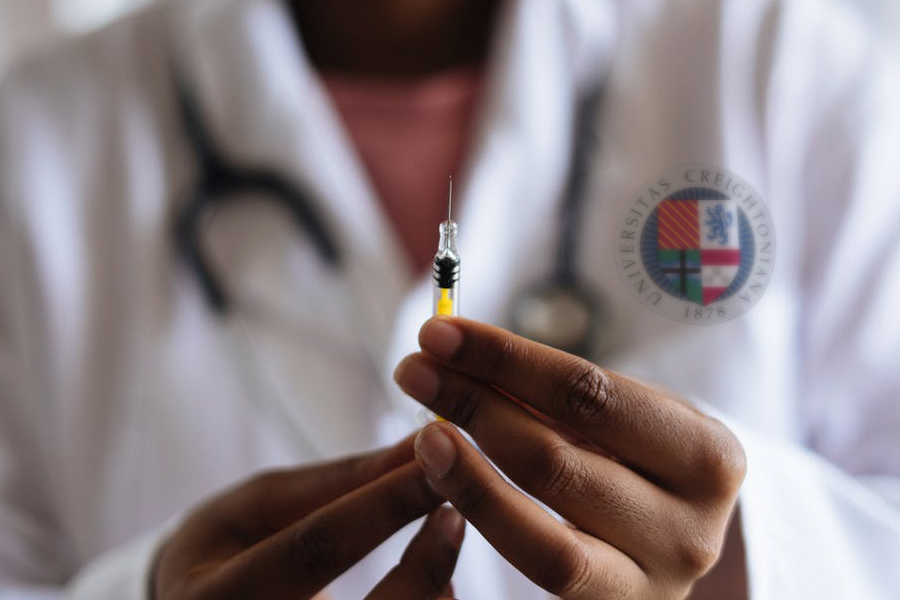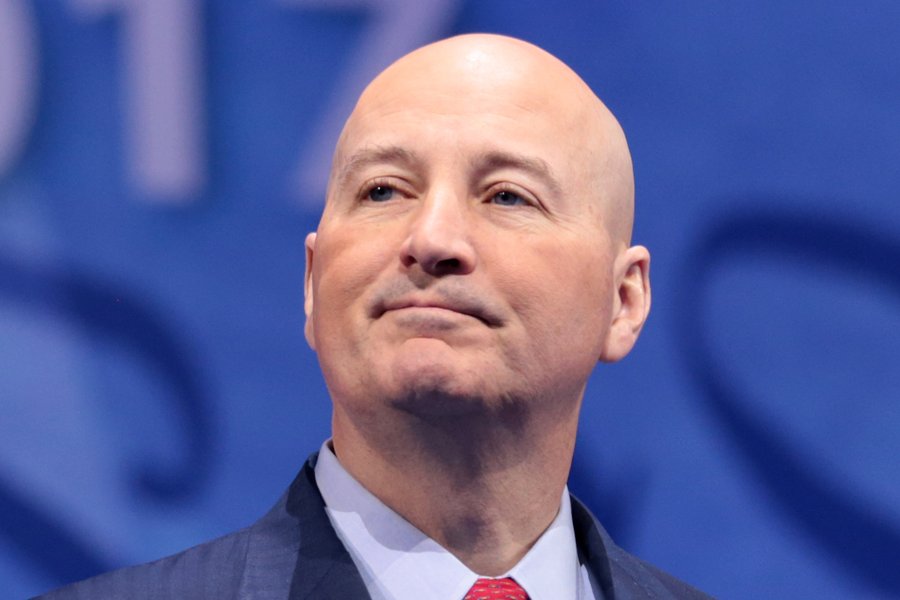by Ryan Yang, Assistant Editor
The Nebraska Supreme Court heard oral arguments Tuesday in a lawsuit brought by Creighton University students who had suffered banishment from class and from the Creighton campus (as well as from all activities and events taking place there) after they had refused on religious and conscientious grounds to take the Covid “jab” because of its association with aborted fetal remains. This action by the Creighton students appears to be a unique case with important ramifications for college students and educators in the State of Nebraska, so The Cornhusker Guardian is calling this Supreme Court hearing to the attention of its readership.
The central issue in Ramaekers et al v. Creighton University (S-21-0848) is whether an institution, in this case an ostensibly Christian one, has the right and ability to change the terms of its relationship with students after it has already agreed to provide a semester, a year, or a degree’s worth of education to them. In this case, Creighton tried to force its students to undergo a medical procedure that many of them did not want to receive, viz., the Covid-19 “vaccine.”
The students argued (through their attorney, Bob Sullivan) that they were parties to an “implied contract” with Creighton. Because of that contract, the students said, Creighton had no legal right to add to it unilaterally a new requirement after they had already struck their agreement with the university.
The students argued that, if Creighton wanted to impose a vaccine mandate on its students, such a mandate could not be employed against students who were already enrolled (and who had registered for classes, received housing assignments, and who were actually attending classes at the time they were informed that they were banned from campus and from all events and activities there).
Creighton, on the other hand, alleged (through its attorney William Hargens) that the students agreed to a change in terms when they signed a “temporary exemption request” form. Creighton argued, without conceding the existence of any implied contract between Creighton and its students, that if a contract did in fact exist, it was modified by the temporary request for an exemption from the Covid-19 vaccine.
Mr. Sullivan, however, asserted on the students’ behalf that that the “request for temporary exemption” was not even called a contract. It was instead denominated as a “request.“
The coercion… involved Creighton’s threat to dis-enroll them if they did not sign the request document.… Mr. Sullivan characterized Creighton’s offer as a choice between “take the vaccine or leave” the university. When the students did not follow Creighton’s instructions in this regard, Creighton banned them from classes, from the campus, and from all activities and events at Creighton.
Prior to Tuesday’s argument, Mr. Sullivan had filed a brief which pointed out numerous ambiguities with the “temporary request for exemption” form, arguing that it fell far short of being a contract, and that the students were in any event pressured and coerced into signing it.
The coercion, Mr. Sullivan said, involved Creighton’s threat to dis-enroll them if they did not sign the request document. In his oral argument on Tuesday, Mr. Sullivan characterized Creighton’s offer as a choice between “take the vaccine or leave” the university.
When the students did not follow Creighton’s instructions in this regard, Creighton banned them from classes, from the campus, and from all activities and events at Creighton. Mr. Sullivan characterized Creighton’s actions as harsh retaliation — especially given the fact that all other members of the general public could enter onto Creighton’s campus and attend events and activities there without any proof of vaccination.
Not only were the students banned, however, but several of them also had their accounts frozen — meaning that they could not return to Creighton, nor could they even transfer to another school. In short, those students have been stuck in the limbo of a holding pattern since September of 2021.
There are, however, certain procedural matters which require resolution before the Supreme Court can consider the central issue of this case.
Sullivan characterized Creighton’s actions as harsh retaliation — especially given the fact that all other members of the general public could enter onto Creighton’s campus and attend events and activities there without any proof of vaccination.
Based on the interactions during oral argument on Tuesday, it appears that the Supreme Court is considering whether or not it presently has jurisdiction over the case. Nebraska case law has traditionally held that a trial court’s order must be a final order (as opposed to a temporary one) before the matter can be appealed to the Appellate Court or the Supreme Court.
In this Creighton case, however, the trial court’s order is obviously interpreted differently by the parties — and possibly even by the courts involved. While the students can point to specific language in the trial court’s order which shows that it is a final order, Mr. Hargens (Creighton’s attorney) stated: “I drafted it, and I have to admit that it is ambiguous. I probably got a little lazy in what I used to describe… the relief that was requested.”
The fact that Creighton’s attorney actually drafted the trial court’s order is not unusual. According to other attorneys who practice in Nebraska, a judge will sometimes ask the prevailing attorney to draft a proposed order for the judge’s consideration. There is nothing improper about that.
However, the written order in question, which was signed by the trial judge, portrays the order as more final than the trial judge’s verbal comments indicated. This is because the trial judge himself apparently declined to clarify whether or not his order was final when the case was heard in Douglas County District Court on September 14, 2021.
At the end of that hearing, and after the trial court had ruled against the Creighton students, Mr. Sullivan inquired as to whether the Court’s decision was in fact a final order, suggesting that the students were going to file an appeal. The trial court judge said that he did not know if his decision constituted a final order. This fact may be significant, especially since it was the prevailing attorney’s drafting which may have contributed to the ambiguity.
During the argument on Tuesday, and after Creighton’s attorney had argued that the temporary nature of the order was clear in the record, Justice Jeffrey Funke asked Mr. Hargens whether that was in fact true, noting that the trial court judge had said that the nature of the order “was above [the trial court judge’s] pay grade”, and that it was “for you all to decide”.
Because of this Creighton case, Nebraska’s schools and students may receive from the Supreme Court some clarity on what a school can and cannot do with its policies in regard to students who are already enrolled in school.
The Supreme Court, however, must first wrestle with what it should do about orders which are ambiguous as to their final or temporary nature in order to get to the central issue of this case. After two years of wrangling with all the complications and changing “facts” about Covid-19, it appears that this and many other problems related to the disease still await resolution.




